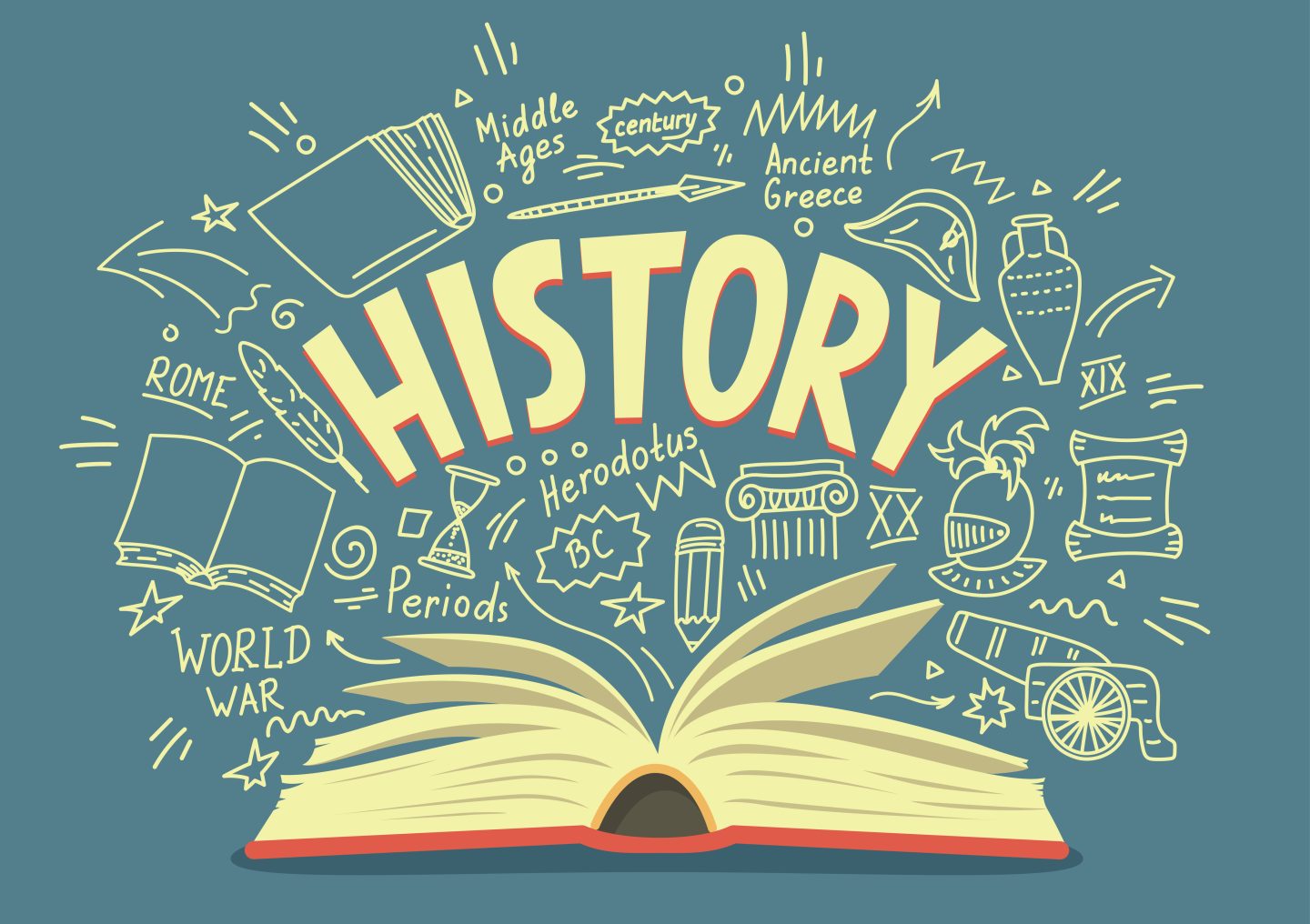
GCSE History Tutor
GCSE History Tutor
GCSE History is a content heavy subject. Consisting of multiple essays that many students can find difficult and overwhelming. Having a GCSE History tutor to hand can not only help with learning content but can also help with structuring these essays. Better structured essays often mean higher overall marks.
GCSE History aims to help students learn more about the history of Britain and that of the wider world. It also aims to develop skills in critical thinking, informed decision-making and clear writing.
GCSE History students work towards a deep understanding of the people, periods and events studied. Therefore working up the ability to engage in historical enquiry and develop as independent learners and as critical and reflective thinkers. They will develop an understanding of why people, events and developments have been accorded historical significance, and how and why different interpretations have been constructed about them.

What do parents need to know?
Exam boards
It’s important to identify which exam board your child’s school is following for GCSE History as they do vary, for example, they tend to offer different choices of topic. This is one of the first questions we will ask you should you give us a call.
The main exam boards for GCSE History are:
- Oxford, Cambridge and RSA Examinations (OCR)
- Assessment and Qualifications Alliance (AQA)
- Edexcel
- Welsh Joint Education Committee (WJEC).
Course components
Although course content varies according to exam board, each student is required to study history:
- From three eras:
- Medieval (500-1500)
- Early Modern (1450-1750)
- Modern (1700-present day)
- On three time scales:
- Short (depth study)
- Medium (period study)
- Long (thematic study)
- On three geographical contexts:
- British
- European and/or wider world settings
- A locality (the historic environment)
Within this, all students are required to complete:
One thematic study: this enables students to understand change and continuity across a long sweep of history. The study covers all three specified eras (medieval, early modern and modern)
One period study: this allows students to focus on a substantial and coherent medium time span of at least 50 years. The study will require students to understand an unfolding narrative of substantial developments and issues. The period study can be from any of the specified eras.
Two depth studies: one British and one European/wider world. These depth studies enable students to focus on a substantial and coherent short time span. Moreover, the studies enable students to gain an understanding of the complexities of a society or historical situation and the interplay of different aspects within it. Depth studies must be taken from different eras.
A study of the historic environment: the study of the historic environment should focus on a particular site in its historical context and enable students to study the relationship between a place and historical events and developments.
It is a lot of content to cover and a lot of work to put together. Therefore, there is potential for a student’s essay quality to slip. Having a GCSE History tutor can help to balance these 4 areas and ensure each piece of work submitted is at a high standard.
What skills do GCSE History students need?
As students study GCSE History over the course of two years, they should develop the ability to:
- Ask relevant questions about the past.
- Investigate historical issues critically.
- Make valid historical claims by using a range of sources in their historical context.
- Organise and communicate their historical knowledge and understanding in various ways and reach evidence-based conclusions.GCSE
- Write effectively and coherently, using specialist historical terms where appropriate and with correct grammar, punctuation and spelling.
A GCSE History tutor will help students to develop:
- Knowledge and understanding of the key features and characteristics of the periods studied.
- Understanding and appropriate use in context of historical terms.
- The ability to create their own structured accounts, selecting organising and communicating their knowledge and understanding in written narratives, descriptions and analyses, reaching substantiated conclusions when appropriate.
- Understanding of the relationships between different aspects within the periods studied, making connections, drawing contrasts and analysing trends.
- The ability to understand and use critically and constructively a range of contemporary source material appropriate to the period (including written historical sources whose precise provenance is given) to frame their own valid historical questions and make their own valid historical claims.
- Understanding of how evidence is used rigorously to make historical claims, discerning how and why different interpretations of the past have been constructed.
How a GCSE History tutor can help achieve high grades
To do well in GCSE History exams it is vital for your child to have a strong grasp of the topics and periods studied so that they have all the key dates, facts, events and developments. However, the key to success in history is not just about knowing content – it is about the student’s ability to use that content in an analytical way to build clear and convincing arguments. To do this, they need to understand the wider historical context of their period, and how the content they have learned connects to this. However, It can be hard to know how gain further knowledge outside of the classroom, having a GCSE History tutor can help with this.
It is important to ask questions such as ‘why was this relevant?’ and ‘what were the consequences of this?’ when learning key dates and facts is therefore crucial to success in History. As is the ability to construct clear written arguments and explanations supported by evidence, which entails spending plenty of time on exam technique and practice papers.
Understand the mark scheme
As a parent, it is important to understand how your child’s GCSE History exams will be marked. All the exam boards publish detailed guidance on what they are looking for, including specimen marked answers. However, this is something your GCSE History tutor will know like the back of their hand. As they are experts in helping prepare for exams.
The examiner will be giving a specific number of marks for pre-determined responses to each question. Your child needs to know exactly what the examiner wants from them in every type of question. They then need to learn how to ‘tick the boxes’ on the mark scheme to ensure they pick up the most marks they can.

Make a revision plans with a GCSE History Tutor
It is really important that your child starts their revision early and organise their revision well. They should start a structured revision plan by the January of their exam year. Having a GCSE History tutor is a great way to help your child devise a practical revision schedule. All of our GCSE History tutors have a load of experience in help students revise for exams.
Quality revision
GCSE History students may make the mistake of attempting to revise by simply reading their textbook or notes and hoping all the facts, dates and important events sink in. The advantage of using a GCSE History tutor is they can help find a far more effective revision strategy. Such as, using active revision methods such as flashcards, mind-maps and timelines to make revision fun. Another error can be to use pre-existing flashcards (and so on) found on the web. It is far more instructive for students to make their own, as the act of making them will begin the process of learning and students can adapt their revision tools to their own particular learning styles. In addition to learning all the necessary context, students can greatly improve their grades by leaving plenty of time to do practice revision papers and to mark these against examiner reports and exam specifications.
What is different for this year? Exam cycle 2022.
The Government has suggested that they will make adaptations to GCSE History exams to allow a greater choice of topics that students can answer questions on. This is to make allowances for the disruption in children’s learning as a result of school closures in 2021.
Sitting Public exams for the first time
Sitting important public exams comes with pressures that your child may never have experienced before. Although a small amount of pressure can help your child’s performance on the day, it is important they have some time to unwind. It is important for students to take some time to relax, taking time to do something social and something they love.
GCSE History tutor
The best way to support your child through their History GCSEs is to give them the tools and skills to succeed. However, some targeted intervention with an experienced GCSE History tutor can make all the difference. Our GCSE History tutors are experienced, qualified teachers, Heads of Department and Examiners who know the GCSE History syllabuses back to front. Therefore, can teach your child in the manner they learn best, explain the latest mark schemes, and dramatically improve their essay technique.
Other GCSE Articles you may find useful:
- Georgraphy